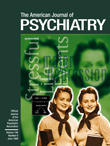Drs. Lynn and Vaillant Reply
To the Editor: We greatly appreciate the comments from Victor Schwartz, M.D. In particular, his points about pitfalls in therapy involving VIPs as clinicians or patients or involving “a setting in which there are goals or considerations extraneous to the treatment” are well taken.
We are also grateful for the kind words from Salman Akhtar, M.D., and it seems clear to us that he understood what we were trying to do. However, we take issue with the fears he expressed that people may use our article either to bash Freud or to rationalize violations of boundaries with their patients. Like Jefferson, we have faith that an educated populace will use information to act more responsibly and that people can be trusted with facts.
The letter from Elizabeth Bromley, M.D., distresses us. Either we failed badly to communicate our points, or she failed to grasp them. To begin, our article is not about Freud’s character; it is about his actual methods and their relationship to the scientific status of his recommendations. Concerning confidentiality, although this feature of medical treatment is obviously not “timeless,” it was a component of the Hippocratic oath, and it was also known to, and repeatedly advocated by, Freud.
Concerning the issues of anachronisms, we can see nothing ahistorical in a comparison of Freud’s recommendations with his concurrent practices. It is true that we did not undertake a review of the testing of Freud’s recommendations by other workers; we would welcome such a review. Our statement concerning the absence of unanimous endorsement of the necessity of anonymity cannot be refuted by individual citations from the literature, nor is it in any way equivalent to an implication that Freud’s theories have been “disproven.” Further, our article does not advocate any particular theory or methods of psychotherapy. It suggests one possible view of Freud’s actual method. It does not thereby “find proof in the past” for any particular ideology.
Finally, Dr. Bromley seems to be raising issues beyond the content of our article by objecting to choices made by the editors of the Journal. Although we would not presume to take on the task of defending the Journal, we report that we have found it to be the most consistently relevant, informative, and reliable of the psychiatric journals.



